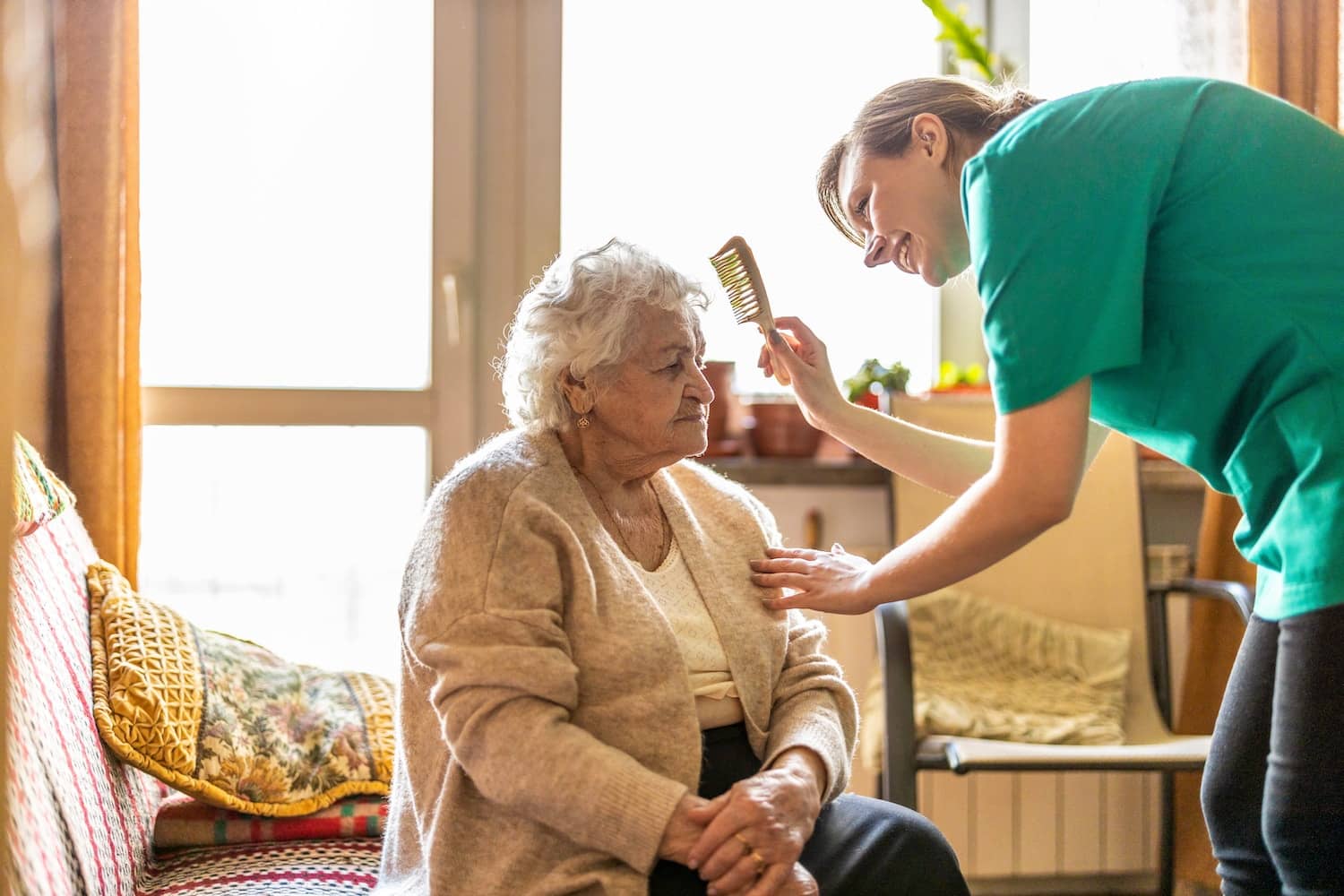Selecting the Perfect Charlotte Care Home: Secret Elements to Consider for Your Family
Selecting the Perfect Charlotte Care Home: Secret Elements to Consider for Your Family
Blog Article
Exactly How to Provide Meaningful and Customized Dementia Care
The provision of significant and customized dementia treatment calls for a nuanced understanding of each person's unique history and choices. Care strategies must be customized to involve the person in ways that resonate with their previous experiences, thereby fostering psychological links and improving general wellness. Developing trust fund via consistent and compassionate interactions is essential for developing a risk-free and helpful setting. As we check out the ins and outs of reliable communication and the vital function of household involvement, it comes to be clear that the journey toward individualized care holds both challenges and profound rewards.
Recognizing Dementia Uniqueness

Treatment service providers should evaluate cognitive capabilities, moods, and behavioral patterns to create customized treatment strategies. This might consist of adapting interaction designs, using acquainted routines, and using significant tasks that reverberate with the individual's past experiences. As an example, engaging a person with an enthusiasm for music with musical tasks might evoke positive memories and improve emotional well-being.
Furthermore, comprehending originality cultivates a thoughtful technique that values the self-respect and autonomy of those dealing with mental deterioration. It motivates caregivers to pay attention proactively, observe behavioral cues, and continue to be adaptable in their caregiving techniques (charlotte care home). By prioritizing individuality, caretakers can not only enhance the lifestyle for those with mental deterioration however likewise build a more extensive understanding of their distinct perspectives, inevitably bring about extra compassionate and effective treatment
Building Trust and Relationship
Establishing trust and relationship is fundamental in dementia care, as it creates a secure and helpful environment for people affected by the problem. Building these links needs consistent, compassionate interactions that focus on the requirements and sensations of the person. Caregivers have to approach interactions with compassion, identifying the distinct challenges dealt with by those with mental deterioration, including memory loss, confusion, and psychological distress.
Caregivers must utilize clear, simple language and non-verbal cues to communicate understanding and assistance. Energetic listening shows regard and recognition, enabling individuals to reveal themselves without anxiety of judgment.
Establishing a routine can likewise improve trust fund. Knowledge with everyday activities and caregivers advertises a sense of stability, allowing people to really feel even more secure. It is necessary to involve with people on an individual level, making the effort to learn about their life background, choices, and passions. By doing so, caretakers enhance the person's identification, advertising self-respect and regard, inevitably resulting in stronger, a lot more purposeful partnerships in the context of mental deterioration treatment.
Tailoring Activities and Engagement
Involving people with mental deterioration with tailored activities can substantially enhance their top quality of life and foster a deeper connection between caretakers and those in their treatment. Personalization is essential, as it acknowledges the one-of-a-kind histories, rate of interests, and abilities of each individual. Tasks must be developed to stimulate cognitive features, promote physical movement, and urge social communication, all while continuing to be satisfying and fulfilling.
To tailor activities successfully, it is vital to analyze the individual's preferences and cognitive capacities. Additionally, including elements of regimen can supply comfort and security, permitting people to engage with activities a lot more with confidence.
Caregivers can enhance interaction by taking part along with the individuals, promoting a encouraging and interactive environment. It is also important to continue to be flexible and versatile, adjusting activities as required based upon the person's power degrees and state of mind. Ultimately, purposeful engagement with tailored tasks not only boosts people with dementia but likewise enhances the caregiver relationship, promoting mutual pleasure and understanding.
Efficient Interaction Methods
Efficient communication is vital in mental deterioration care, as it cultivates a sense of link and understanding between dementia care charlotte people and caregivers experiencing cognitive decline. Utilizing reliable interaction methods can dramatically enhance the quality of interactions and minimize aggravation for both parties.
To start with, using basic, clear language is essential. Short sentences and familiar words assist people understand and react much better. In addition, maintaining a calm and favorable tone can produce a comforting environment, which is essential for individuals that may really feel anxious or overwhelmed.
Non-verbal interaction plays a significant duty also. Caretakers should take notice of body movement, faces, and gestures, as these signs can typically convey even more than words - charlotte care home. Establishing eye contact and making use of gentle touch can also strengthen connections and communicate compassion
Active listening is an additional vital element. Caretakers ought to listen, enabling individuals to express themselves fully, also if their speech is vague or fragmented. This reveals respect and motivates a lot more open communication.
Last but not least, validating sensations and experiences is important. Acknowledging feelings, despite their basis in truth, can give convenience and enhance the caregiver-individual relationship, advertising a more helpful atmosphere.
Supporting Household Participation
Family involvement plays a considerable duty in the overall care and assistance of individuals with mental deterioration. Engaging member of the family develops a collective atmosphere that boosts the quality of care, fosters psychological connections, and ensures that the one-of-a-kind demands of the person are fulfilled. Member of the family frequently possess indispensable understandings right into the individual's history, choices, and habits, which can be critical in establishing individualized treatment techniques.

Moreover, member of the family can be motivated to participate in daily care activities, such as involving in purposeful conversations or assisting with acquainted routines. This not only aids sustain the person's feeling of identity however additionally enhances domestic bonds. Eventually, by fostering a comprehensive technique that values household payments, treatment suppliers can enhance the overall experience for both people with dementia and their loved ones.
Final Thought
Finally, delivering individualized and meaningful mental deterioration care requires a detailed understanding of each individual's distinct history and choices. Developing trust and relationship through caring communications is vital for creating a secure atmosphere. Customizing activities to resonate with individual passions improves psychological health and promotes dignity. Efficient communication methods better support this process, while actively involving family participants improves the caregiving experience and fosters much deeper links. Jointly, these strategies contribute to improved high quality of life for people with mental deterioration.
The provision of significant and customized mental deterioration treatment needs a nuanced understanding of each person's unique history and choices. By doing so, caretakers enhance the person's identification, advertising dignity and regard, eventually leading to more powerful, much more purposeful connections in the context of dementia care.
Engaging people with mental deterioration via customized activities can dramatically boost their quality of life and foster a much deeper link between caregivers and those in their treatment.Family members participation plays a considerable role in the total treatment and assistance of people with mental deterioration. Inevitably, by promoting an inclusive approach that values family members payments, care service providers can enhance the total experience for both individuals with dementia and their liked ones.
Report this page